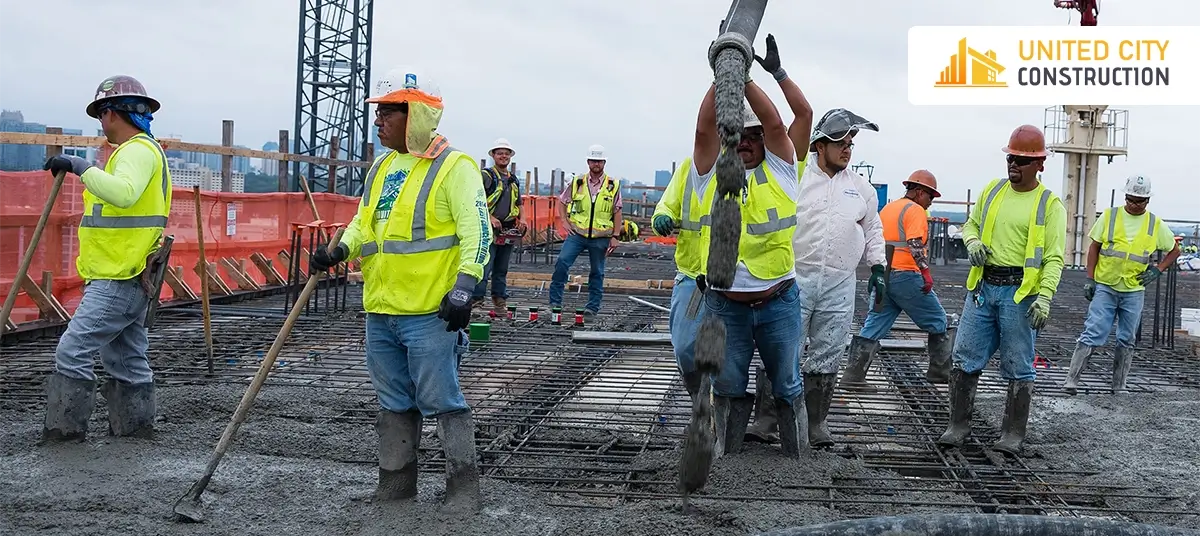6 Ways to Finance Your Commercial Building Project

As a professional contractor in NYC it is an exciting opportunity for business growth to have a commercial construction project. However, one major issue that contractors mostly face is securing sufficient funding to finance the project, as commercial building endeavors can be extremely expensive. In this blog post, we will explore different financing options which are available for construction contractors and allow them to successfully secure the funding they need to start and finish their commercial construction projects.
1. Traditional Bank Loans
Traditional bank loans are one of the most common methods for financing commercial building projects. Contractors can approach banks or financial institutions to secure loans based on their creditworthiness, business plan, and collateral. These loans typically have competitive interest rates, extended repayment periods, and plan structured installment, making them a feasible choice for many contractors. However, remember these types of loans have become increasingly difficult to obtain. In the past, you only needed a good plan and halfway decent credit but in today's world You will need both a good plan and excellent credit. Applying with anything less you can result in an automatic rejection. On top of that, you will need a guarantee, which means your equipment is tied up in the project. Many banks are not in the construction business and, since the nature of the job is unstable, are often frightened from the construction industry. Banks like to be paid regularly and on time, but if you don't have savings it can be difficult for you. Traditional banks are also not interested in financing against your contract as collateral, so you will need enough collateral to satisfy their loan department.
2. Construction Loans
Construction loans are specially designed to meet the unique financial requirements of contractors and facilitate funding for commercial construction projects. These loans are typically dispersed in phases, with the funds released in installments as the project reaches pre-determined milestones. Construction loans may have higher interest rates compared to traditional loans, but they provide contractors with the necessary funds for use during the project's construction phase. Construction loan companies are specialists in loaning for the business and will not release money if progress has not been made to their standards. In some areas of the country, finding these loans has become increasingly more difficult.
3. Peer-to-Peer Lending
Peer-to-peer lending platforms represent a great evolution in commercial construction funding and gained popularity in recent years. It is providing an innovative financing alternative for construction contractors for their projects. In this case, construction firms and contractors can connect with individual investors willing to fund their commercial building projects.
The main benefit of Peer-to-peer lending for construction contractors is to enhance the flexibility, simplified application processes, and potentially lower interest rates compared to traditional lending options. Contractors might find it easier to secure funding for specific phases of a project or for non-standard construction types through a P2P platform. The online nature of this platform helps to reduce paperwork, faster turnaround times for approvals, and a more transparent process overall. This efficiency can be important for contractors in NYC to operate on tight schedules and require timely access to capital to initiate or continue projects without delay.
4. Equipment Financing
Construction projects continuously demand the use of specialized equipment, which becomes a considerable financial burden for contractors. The cost of purchasing updated machinery, can be escentail and may not be economically feasible for every project or company, particularly smaller firms or those undertaking short-term endeavors. Equipment financing provides a dedicated method for contractors to secure the necessary capital for acquiring or leasing essential equipment for their commercial construction projects.This targeted approach is more favorable for general construction contractors, including potentially lower interest rates and longer repayment periods aligned with the lifespan and revenue-generating potential of the equipment.
Securing equipment financing offers numerous benefits for commercial building contractors. It allows them to access the equipment they need without tying up significant amounts of their working capital, preserving cash flow for other operational expenses and investment opportunities. This can be particularly advantageous for smaller or newer contracting businesses with limited capital reserves.
5. Joint Venture Partnerships
Another viable financing option for professional construction contractors is entering into joint venture partnerships with developers or investors. This is another option that is highly recommended by those who are experienced in the commercial construction industry. In this case professional contractors use their specialized knowledge, skilled workforce, and necessary tools and machinery to undertake a specific project or deliver defined services. At the same time the partner provides the crucial financial resources required to initiate, execute, and finalize the undertaking.
This collaborative structure works if one party possesses the operational capabilities and the other commands the capital investment, The division of responsibilities is typically clearly defined within the agreement, outlining the scope of work for the contractor and the financial obligations of the partner.
6. Subcontractor Financing
Subcontractor financing offers a distinctive approach to construction project funding, where the primary contractor uses the financial resources of its subcontractors. The specific mechanisms of subcontractor financing can vary. In some cases, subcontractors might agree to defer payments or provide performance bonds that act as collateral. This method typically involves the subcontractors providing some form of financial backing or guarantee, which the main contractor can then use to secure loans or lines of credit. This can be particularly beneficial for smaller or newer contractors who may lack the established financial history or substantial assets required to obtain traditional financing on their own. This approach can reduce immediate cash flow challenges and ensure the smooth progress of the commercial building project.
Conclusion
Financing a commercial construction project in NYC is no small feat, specially with the rising costs and tightening lending standards in the industry. However, understanding and using the variety of financing options that can make significant differences, whether it's traditional bank loans, construction loans, peer-to-peer lending, equipment financing, joint venture partnerships, or subcontractor financing. Each method offers unique advantages depending on your company's size, financial position, and project scope. As professional contractors in NYC or general construction contractors elsewhere, exploring these financing avenues with a clear strategy can empower you to successfully fund and complete your commercial construction projects, ensuring growth and long-term success in a competitive market.
Contact us today at United City Construction to explore the financing strategies that match your project scope and business goals. Our team of professional contractors help you to choose the right funding option which is the first step to success.










